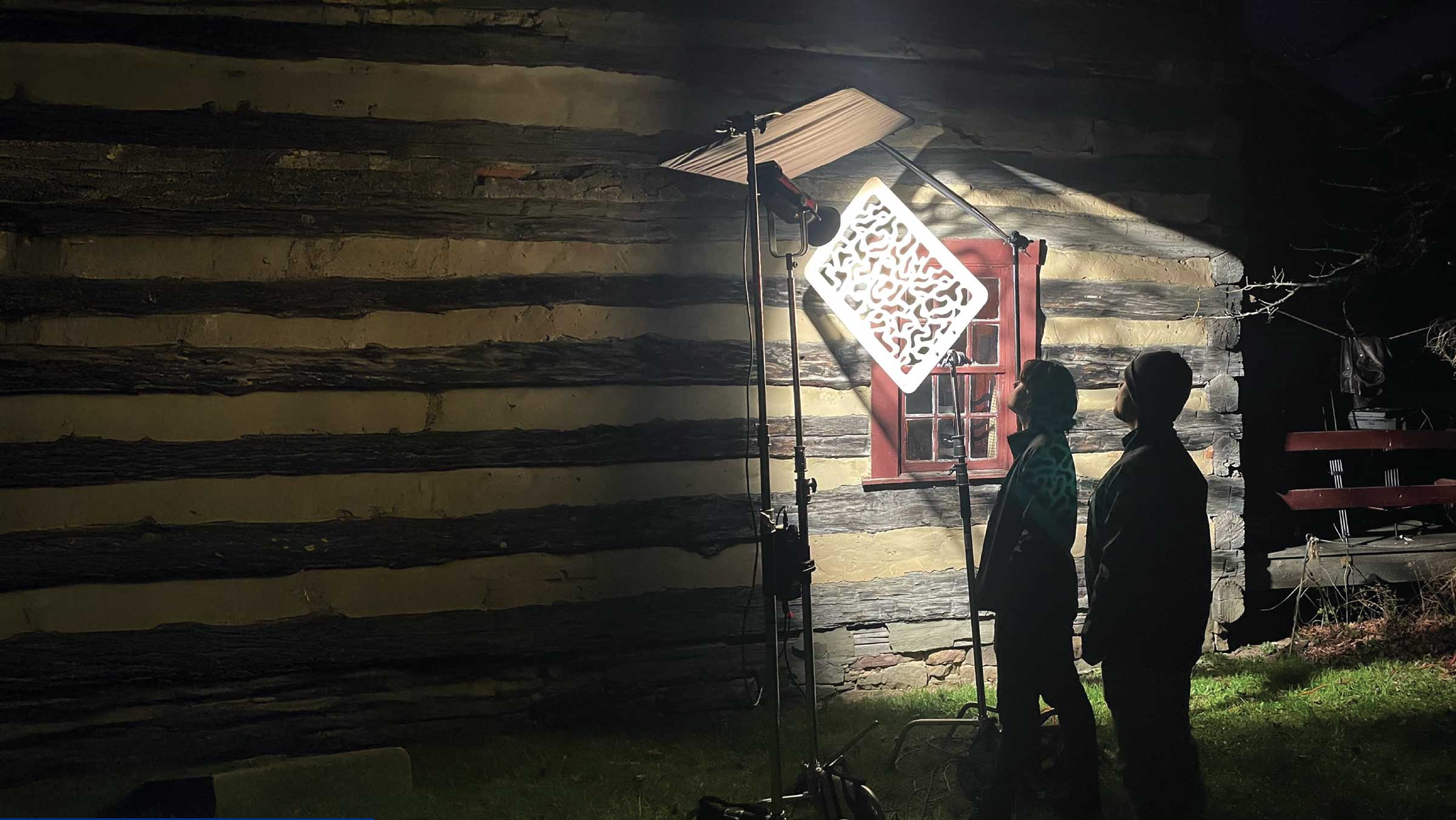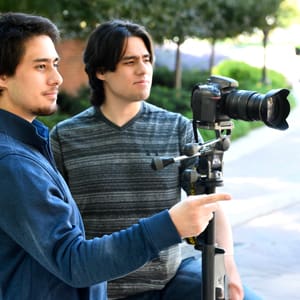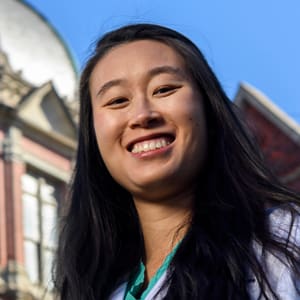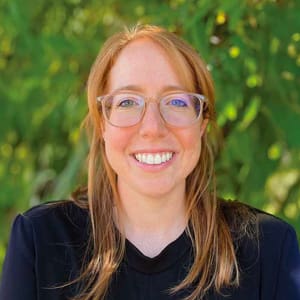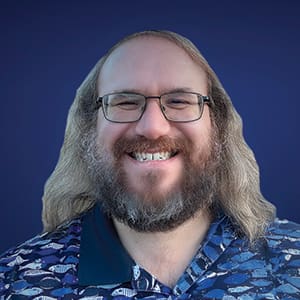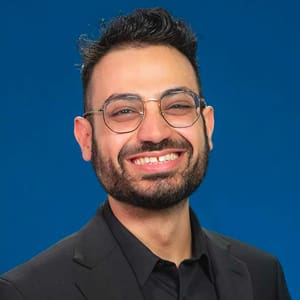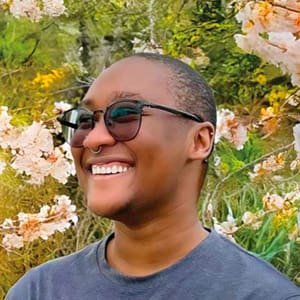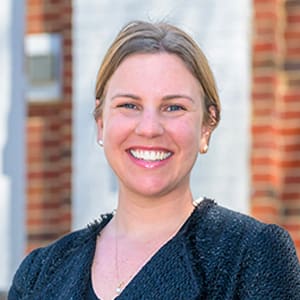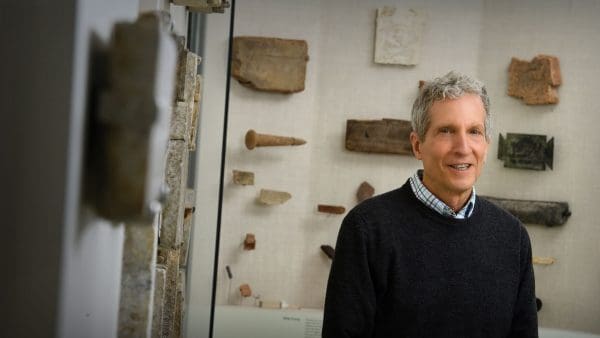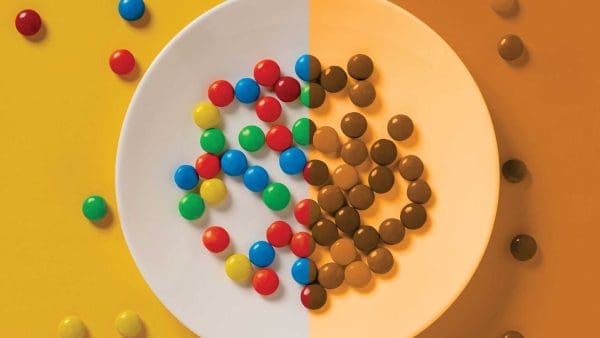Student research is often a core element of a Krieger School education, sometimes leading to new discoveries, publications, or career opportunities. Each issue of Arts & Sciences Magazine includes a section highlighting such research, where students share interesting or unusual projects they’ve taken on through fellowships and independent study.
But what happens next? What lessons do these students carry from their research? Do their projects help to shape their pathways, either personal or professional? Here, we catch up with eight previous researchers to see where life has led them.
Curtis Nishimoto ’22
Film and Media Studies
Thomas Nishimoto ’22
Film and Media Studies, Applied Mathematics and Statistics
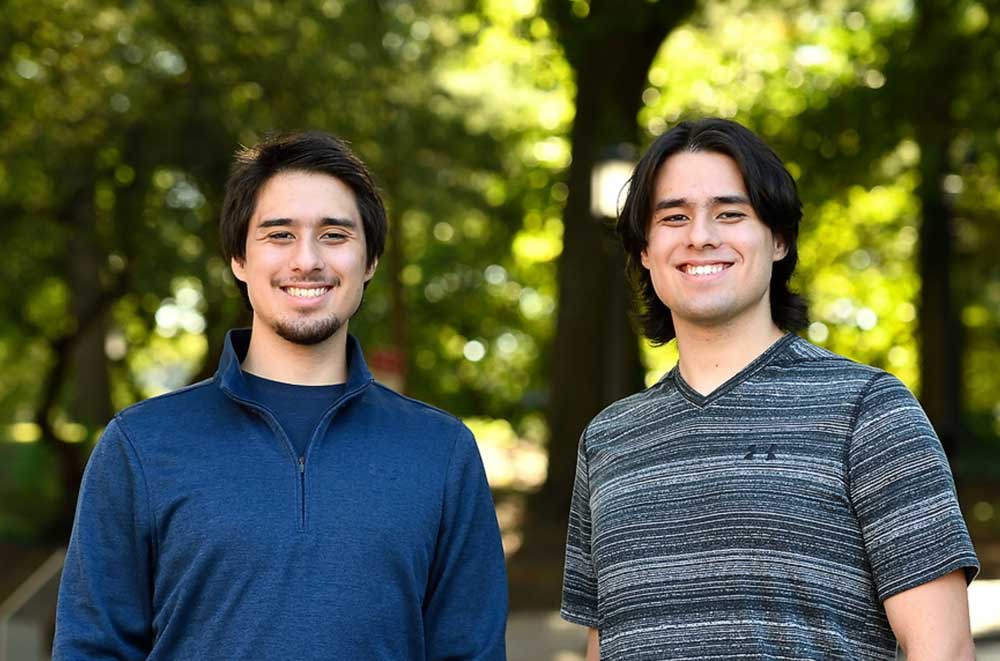
Student research
With funds from a Woodrow Wilson Fellowship they each received, the Nishimoto twins turned their passion for filmmaking into Nurikabe, a short film that Thomas wrote and Curtis directed. Inspired by Japanese folklore, the suspense story was filmed at a historic lockhouse on the C&O Canal in central Maryland. The movie played at the Shockfest and Los Angeles Lift-Off film festivals.
Current work
The brothers have continued working together as filmmakers, videographers, and editors, initially in Maryland and, more recently, in Los Angeles. They have released several additional shorts and worked on a range of film industry projects. Along the way, they have drawn upon their complementary areas of expertise developed at Johns Hopkins through different classes and professors. Thomas took screenwriting classes that focused on big-picture elements such as story structure and character arc, while Curtis’ classes focused more on details of scenes, character dialogue, and how each element plays into the larger whole.
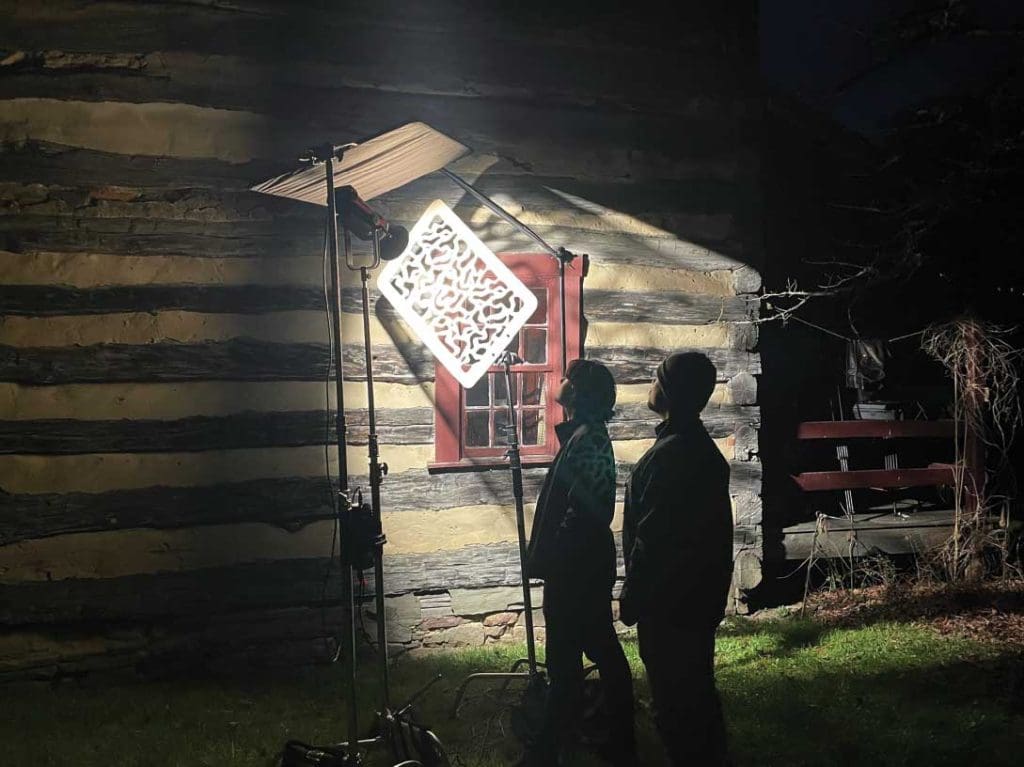
The Nishimoto brothers working on the set of Was Once a Hero, a Western directed by Michael Tuthill.
“Once we graduated, we realized we have two very different skill sets when it comes to screenwriting,” Curtis says. Thomas adds: “That’s been really great for our writing process.” The brothers are continuing their intertwined career journey, with Curtis pursuing his MFA in film and television production at Loyola Marymount University, and Thomas working as a freelance editor, while developing their next film project.
Influence of research experience
“The Nurikabe experience ended up being super-valuable because it was like a second film school,” says Thomas. “It was a really good way to cut our teeth.” Adds Curtis: “The experience we had making that film has really carried us all the way up to our most recent film, Operation: Wet Paint.” The family action comedy short, partially funded by a grant from the Maryland State Arts Council, involves paintball guns and middle school conflict resolution, starring an eighth grader named JD and his friends.
Victoria Huang ’15
Molecular and Cellular Biology,
Public Health Studies
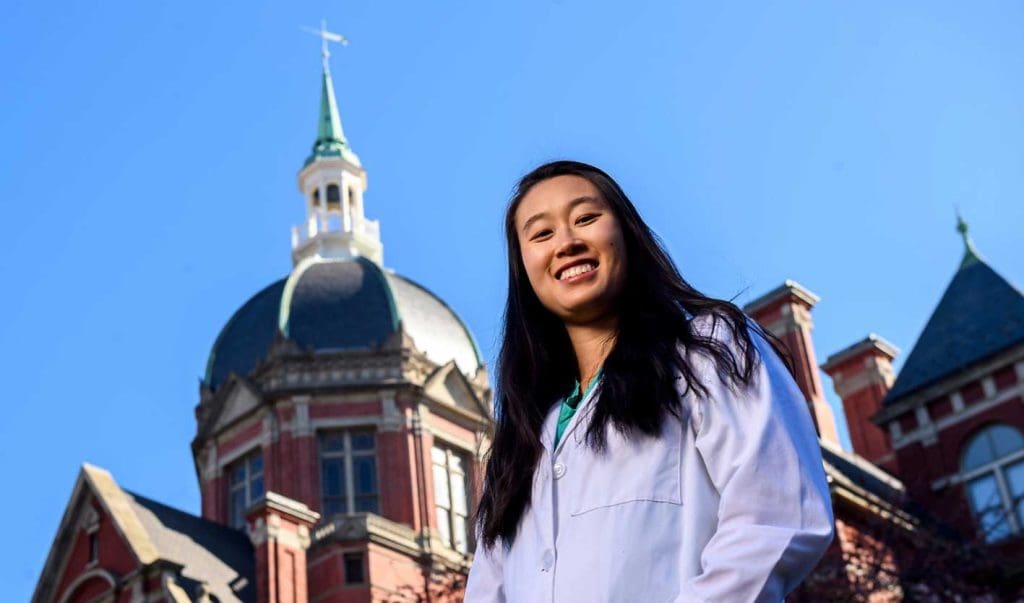
Student research
Huang engineered versions of curative gene therapy for Duchenne muscular dystrophy, a genetic disorder characterized by progressive muscle weakness and wasting.
Current work
Following medical school and residency at Johns Hopkins, Huang is a third-year clinical fellow in pediatric critical care medicine at the Johns Hopkins Children’s Center, and a PhD candidate in clinical investigations at the Bloomberg School of Public Health. She plans to use big health data and data science to inform clinical decision-making in the pediatric intensive care unit as a clinician-scientist. Currently, she’s researching how data can predict which children will improve or get worse following certain interventions in the ICU, and whether data can help answer that question.
My research with Duchenne muscular dystrophy was my first connection between basic science research and a clinical disease.”
—Victoria Huang
Influence of research experience
“My research with Duchenne muscular dystrophy was my first connection between basic science research and a clinical disease. The core fundamentals are similar and shared, so it jumpstarted my interest in tying research to a clinical question.
“My basic science experience really helped build my research foundations, but I later became interested in data science and how it applies to clinical research. In the critical care unit, we’re overloaded with data all the time. Making sense of all of the inputs and applying that to the research field was how I transitioned from basic science to the clinical and data science realm.
“I didn’t have much background in math or programming, so I enrolled in the PhD program to build those skills.”
Anthony Boutros ’20
Sociology, International Studies, Public Health Studies
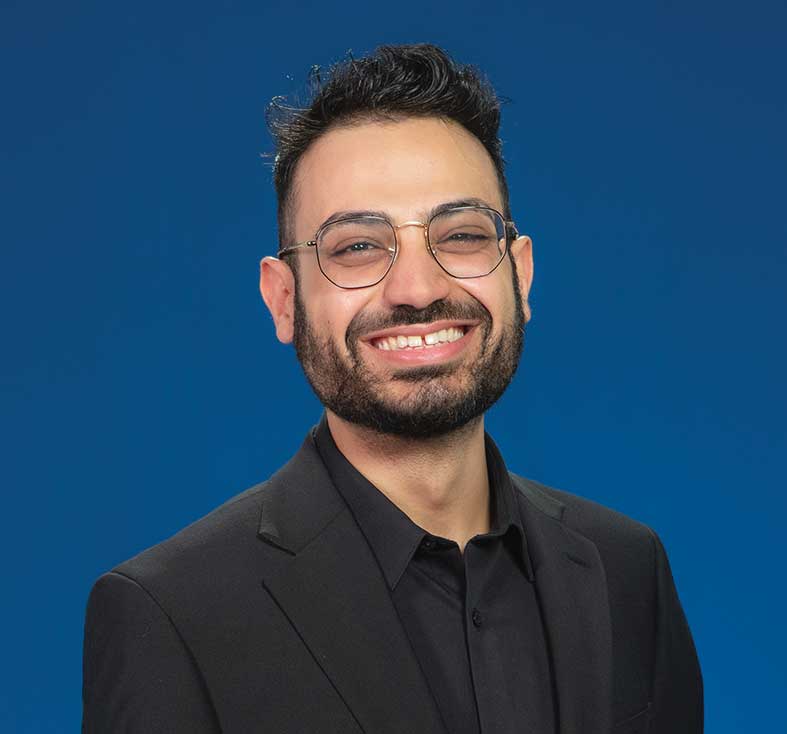
Student research
Boutros spent two summers in Lebanon researching how women’s, LGBTQ, and migrant workers’ community groups fight for rights and dignity.
Current work
He is a transportation specialist at the Federal Highway Administration’s Office of Safety. The office serves state, local, and Tribal communities as they envision, plan, and build safety into the transportation network. He is also a personal trainer, Zumba instructor, and writer.
Boutros is passionate about his work as a public servant and is inspired by how dedicated his coworkers are to keeping people safe and healthy. He has led and contributed to multiple studies that examine the risk factors leading to the over 40,000 fatal crashes and 2 million serious injury crashes that impact the lives of people across the United States annually. He has also led research, developed case studies on noteworthy strategies, authored articles, led a webinar series on actionable tools and strategies to improve safety that was attended by over 10,000 professionals, provided technical assistance to dozens of state and local agencies, and led workshops and presented at multiple national conferences.
“The purpose of this work is to make a real difference so all people can be safe on our roads and streets,” he says, “and make America a safer, more thriving nation.”
Outside of work, he continues his mission to improve health and safety by teaching Zumba and training clients at his local YMCA.
Influence of research experience
Boutros says his academic research skills help him conduct interviews, develop surveys, code data, and communicate findings effectively. “It’s really incredible how translatable and applicable some of the research I did in college has been in serving the public,” he says.
(The views expressed do not necessarily represent the views of the Federal Highway Administration.)
Dominique Dickey ’21
The Writing Seminars
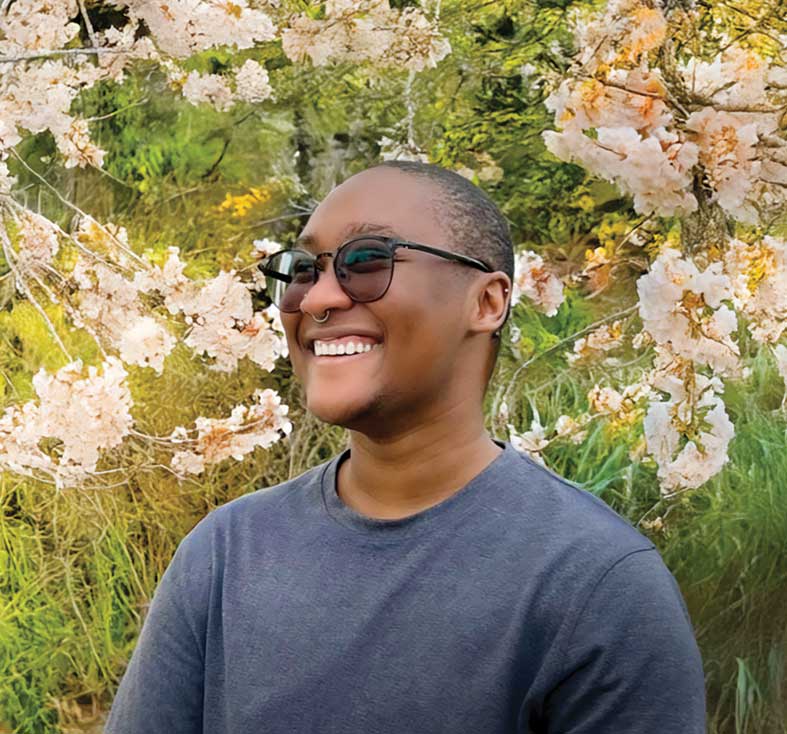
Student research
Dickey wanted to explore how science fiction often serves as a precursor “for concepts we aren’t ready to explore in real life yet.” Inspired by writer Ursula K. Le Guin, whose book The Left Hand of Darkness envisioned a genderless society, Dickey worked on a project that examined science fiction from a gender perspective.
Current work
Dickey is the creative director of Sly Robot Games, founded with another JHU alum, C.J. Linton. The company creates and sells games that “capture the complexities of our world and the possibilities of the future.” Dickey also edits and writes tabletop role-playing games (RPGs).
Dickey says that creating RPGs uses the same framework as the “deeply human tradition of storytelling.” It’s a way of building new worlds, which harkens back to Dickey’s exploration of science fiction. They say that gaming has the potential to “inspire internal change and action” because gamers need to confront unexpected situations and make thoughtful decisions.
Dickey recently wrote a novella, Redundancies and Potentials, published by Neon Hemlock Press.
Influence of research experience
“I learned how to read carefully and think critically—how to pick apart a text and learn lessons about writing,” says Dickey. “Most importantly, I was given the time and encouragement to write and grow my creative voice.”
Em Mitchell ’15
Psychology
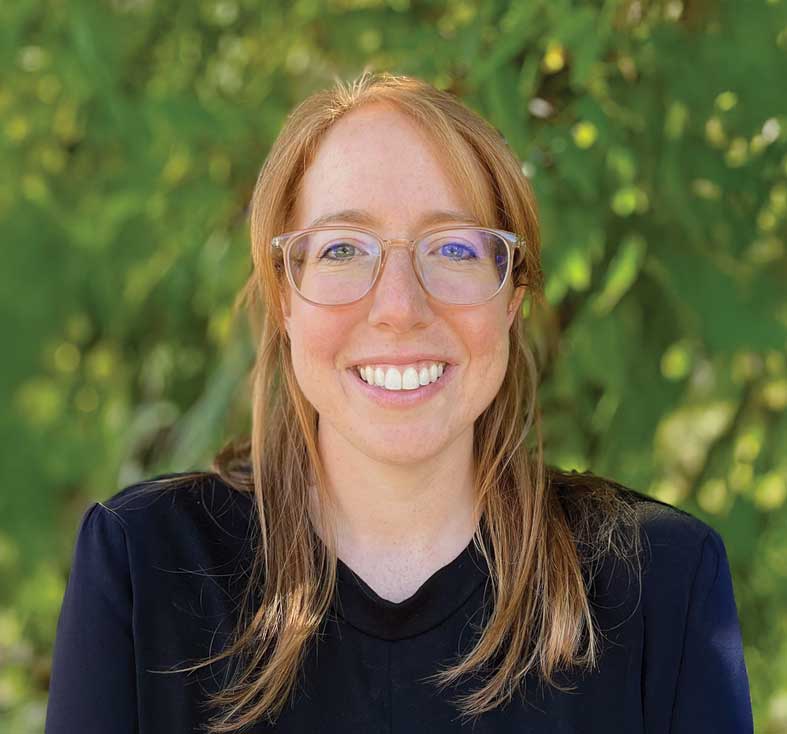
Student research
Over two summer sessions, Mitchell studied sexuality and gender issues in the Mormon Church by interviewing LGBTQ individuals who were also involved in Mormon culture in Provo, Utah, and in Singapore.
Current work
Mitchell is a couples therapist in San Diego, specializing in emotion-focused therapy (EFT) with a focus on LGBTQ individuals, ethically non-monogamous relationships, and other nontraditional/expansive relationships.
“Undoing shame” is a priority for her. When people grow up with narrow definitions of how relationships or sex “should” be, it can create a false idea that people who want something different are “bad,” she says. Mitchell helps people understand what matters to them and motivates them, and how to implement that in their relationships and sex lives.
“There is a lot of power in being allowed to release expectations that don’t fit, and building relationship patterns that work best to meet the needs of each unique couple,” she says.
Influence of research experience
“I took away more of an understanding of the vast diversity of experiences that are ‘normal,’ and a respect for cultural differences in ways of experiencing and expressing love—including through spirituality and religious customs,” Mitchell says. “The people I met through my research were extremely impactful in helping me see that there is no one best life or path for every person—and that love can take many forms. What matters most is tuning into and honoring what feels most important to them to guide their choices.”
Alexander de la Vega ’16
Physics, Applied Mathematics and Statistics

Student research
Based on an illustration and description in a Chinese war manual from the Ming Dynasty in the 14th century, de la Vega undertook a research project to reconstruct a dragon-headed rocket that purportedly launched secondary rockets in flight. De la Vega and two colleagues conducted wind-tunnel testing on 3D-printed scale models for preliminary aerodynamic analysis, as well as field tests of larger models.
Current work
After Hopkins, de la Vega stayed on at the university as a graduate student researcher. During that time, he used Hubble Space Telescope data to study why some galaxies stop forming stars and become “quiescent,” as astronomers poetically put it. In the process, de la Vega also started doing astronomy outreach to the public, going to science events around Baltimore and operating the Maryland Space Grant Observatory on the roof of the Bloomberg Center for Physics and Astronomy. “The environment of Hopkins certainly made it easy and fun to do outreach,” says de la Vega, noting that the Space Telescope Science Institute, which has managed Hubble since its launch 34 years ago, as well as the James Webb Space Telescope that went up in late 2021, is right across the street from the physics building where he studied.
After receiving his PhD in astrophysics from Johns Hopkins in 2022, de la Vega started a postdoctoral position at UC Riverside. He is now using Webb data to peer back deeper into the universe at quiescent galaxies to tease out the mechanisms for their quenched star forming. He also leads the public outreach program in astronomy and goes to public schools and libraries to put on physics shows and host telescope nights so people can soak up some cosmic splendor.
Influence of research experience
“My Ming Dynasty rocket project absolutely inspired me to continue doing research in grad school and beyond,” says de la Vega. “Hopkins is a unique place in that it gets undergrads involved in research from the get-go, and that was a great experience.”
Kelsey Champagne ’15
English, French

Student research
Champagne used resources at Oxford University to piece together the life of Solomon Aldred, a former Catholic who became a spy for the Protestant Elizabethan government in 1584. Very little research has ever been done on Aldred, so secondary sources are scarce and consist mainly of letters written to, by, or about Aldred. Champagne’s work meticulously created a micro-history of a little-known historical figure.
Current work
Champagne went on to get a PhD from Yale University in history. She came back to Johns Hopkins in 2021 as a postdoc to curate a special collection of writings and art for the Sheridan Libraries. The research culminated in an exhibit at the George Peabody Library in 2022, “Women of the Book: The Spiritual Lives of Early Modern Women, 1450–1800,” which presented deep insight into the lives of women (primarily Roman Catholic nuns) in Europe and Latin America hundreds of years ago.
Since 2023, Champagne has been an assistant professor of history and museum studies at St. Mary’s College of Maryland. She specializes in history centered on the Atlantic world, covering the era of European imperialism from 1492 to roughly 1800. A major focus of her continuing research is on colonial St. Mary’s City itself, the original settlement of the colony of Maryland, and the marginalized experiences of the people originally enslaved there.
Influence of research experience
“The work that I did as an undergrad really shaped my whole career,” says Champagne. “I discovered a passion for curatorial work. I feel very lucky that I have a job I love so much.”

